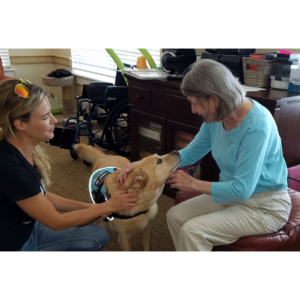Are resident grievance committees effective?
When I first moved into a nursing home more than 17 years ago, I learned that there was a Grievance Committee to hear resident issues. The administrator appointed at least one resident, a pastor and a few community folks to serve on it. For a while the committee had regular meetings. Later, they met only when a specific issue needed to be resolved.
At one point, I agreed to serve on the committee. But since we never had a meeting, I felt I was a member "in name only."
When I became active with Resident Council and was elected president several times, I tried to make sure resident concerns were addressed and resolved at meetings. One time, a male resident got agitated at Resident Council meetings because he did not think his concerns were addressed. I really wanted to assist him. He wanted to talk or write to the facility's owner, so I offered to let him dictate his letter me so that I could type it, but he got even more upset. The social worker told me that resident had dementia, which made reasoning with him difficult. The social worker suggested I forget trying to help him. Reluctantly, I did.
Once during my stay, I filed a grievance with the administrator regarding the behavior of two aides. Although he may have read what I wrote, there was no Grievance Committee meeting called. I also never received any feedback from him.
Ohio law has changed from nursing home administrators "must" to "may" have a Grievance Committee. So perhaps administrators do not feel these committees are not helpful. Administrators would probably rather resolve issues with residents by using staff or managers to ontervene. I can see this logic. But as president of Resident Council, I felt bad because the agitated, male resident blamed me for his questions going unanswered.
I realize it is probably difficult to get residents and diverse folks in the community to serve on a grievance committee. I am sure administration felt they had to lead them. But in my experience when committees are comprised of outsiders, leadership and education is necessary.
In another facility, I worked with staff to form a Family Council. The facility wanted the meetings to be scheduled for 6 p.m., which was not a good time for me. We also needed a staff person to organize refreshments and attend the meeting. We tried, but failed.
When i go out in the community where I currently live, I've noticed that one local nursing home's outdoor advertising boasts an Internet café. I wonder if that would draw in outsiders who might get involved with Family Council or serve on a Grievance Committee.
If nursing homes find innovative ways to grab the attention of the quickly retiring baby boomers, they will have an insightful, involved group to provide input that could make the administrator's job easier.
I Advance Senior Care is the industry-leading source for practical, in-depth, business-building, and resident care information for owners, executives, administrators, and directors of nursing at assisted living communities, skilled nursing facilities, post-acute facilities, and continuing care retirement communities. The I Advance Senior Care editorial team and industry experts provide market analysis, strategic direction, policy commentary, clinical best-practices, business management, and technology breakthroughs.
I Advance Senior Care is part of the Institute for the Advancement of Senior Care and published by Plain-English Health Care.
Related Articles
Topics: Activities , Leadership











